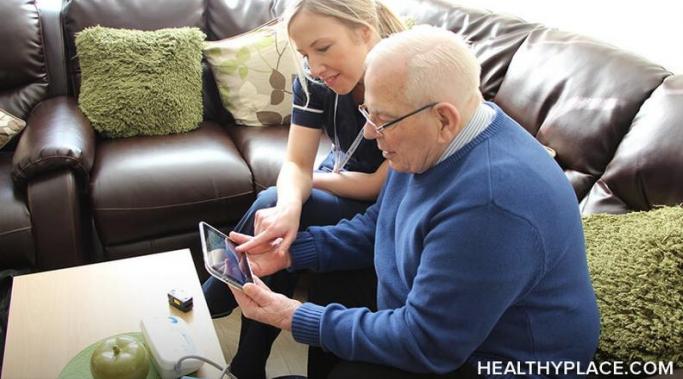This past week brought a lesson in how vital self-care is to mental health and mental health recovery. Self-care can be overlooked when we are suffering from depression or experiencing other mental illness symptoms. I have a dear old friend who many consider the sweetest person they’ve ever known or may ever know. This dear woman has always been the type who will go to the ends of the earth to help people, and not just friends and family.
Recovery Issues
Recently I had an upper endoscopy to find out why I was having stomach pain and nausea. The study basically confirmed what I already knew--there is inflammation in my stomach. Someone remarked to me "It must be good to know it's not all in your head!" That made me think about what often happens when psychiatric patients need medical treatment.
Recently TheAtlantic.com published an article titled, Should the US Bring Back Psychiatric Asylums? The article talks about the cynicism surrounding long-term psychiatric facilities, the consequences of de-institutionalization (homelessness and incarceration), as well as the need for such psychiatric facilities. So the question is, should we open more long-term psychiatric facilities?
Like it or not, other people often have input in our mental health treatment. For example, my mother once contacted a psychiatrist and told her my symptoms. Without talking to me, the psychiatrist told my mother what changes she would make. I confronted her and she later told my mother I had an attitude problem (ironically enough, this psychiatrist told my mother my borderline personality disorder (BPD) was caused by poor parenting). Long story short, I fired her. But you can't really blame my mother. She wanted what was best, even if it meant the psychiatrist broke confidentiality in a non-emergency situation. It raises an interesting question: should other people have input in your mental health treatment?
Those of us in mental health recovery are often faced with the hardships our symptoms can cause us. It can be easy to get discouraged, to look at our progress in recovery and tell ourselves, “I’m never going to overcome this mental illness.”
Mentally ill people don’t have a pass on life’s crises. Wouldn’t it be great if The Universe said, "You are one who suffers daily. To make it fair, I hereby declare mentally ill people should be spared from life’s hardships?"
I sit in my home by myself because my family left. I don’t blame them. They just couldn’t take it anymore. What they couldn’t take was me and my posttraumatic stress disorder (PTSD). I have come to refer to it as “the PTSD me,” because it often feels there’s two completely different people within me.
It's difficult for some loved ones to give us validation for our mental illness because they don't want to believe we're in so much pain that they cannot heal. Mental illnesses and the symptoms they cause can sometimes put us in a great deal of pain. We have a need to share our pain with others. There’s just a desire in us for people we care about to know that we’re hurting. We want them to know so they can comfort us, reassure us, and take care of us. Mental illness validation from our loved ones and doctors helps us to recover.
If you are a person with mental illness, it is important that you feel safe with your doctor or psychiatrist. Your relationship with your doctor is one of the most important relationships in your life. This person will hear some of the most intimate details of your life. They will help you decide what medications to take, at what dosage, to help you. Arguably, they will know you as well as your significant other does. Your doctor will have the power to hospitalize you against your will if they determine you to be a danger to yourself or others. So, do you feel safe with your doctor?
Coping with symptoms of mental illness can be a daily struggle for the mentally ill. Each person develops his or her own strategies to cope with these painful experiences. These strategies can be as unique to each person as you can make them. What works for you to battle your mental illness symptoms might not work for me, and vice versa.
We learn these coping strategies over time in the crucible of our illness and the ways in which we gain insight into our symptoms and how they uniquely affect us. That’s why it’s not very helpful to say to a mentally ill person struggling with their symptoms, “Just do this,” or “Just do that.”









